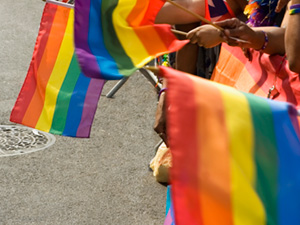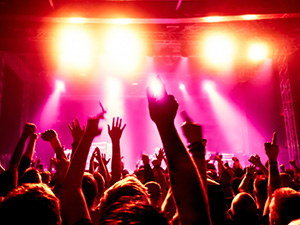Language: Danish
Climate: Temperate climate, characterised by mild winters, with average temperatures in January and February of 0°C and cool summers with an average temperature in August of 15.7°C. Because of Denmark's northern location, there are large seasonal variations in daylight. There are short days during the winter with seven hours from sunrise to sunset, and long summer days with 17 hours from sunrise to sunset.
Time Zone: CET – Central European Time
International phone code: 45
Currency: Danish Krone (DKK)
Capital: Copenhagen
Transportation: Travel into Denmark by plane, bus, car, train and ferry with land crossing only from Germany. The majority of international flights arrive in Copenhagen, one of Europe’s most important hubs. Please be aware it is a "silent" airport and there are no boarding calls, although there are numerous monitor screens. Travelling by ferry domestically and internationally is a popular option.
Gay Denmark:
Denmark has long been a pioneer of LGBT rights and provides one of the highest degrees of liberty in the world for its LGBT community. Queer rights are extensive and a high priority, reflecting the tolerance of Danish society at large.
Same-sex sexual activity was legalized in 1933 and The National Association for Gays and Lesbians, the first of its kind, was founded in 1948.
Denmark was the first country to recognize same-sex unions, in the form of registered partnerships, in 1989. That law was replaced by a new same-sex marriage law in 2012, which includes marriages in the Church of Denmark.
Recently named one of the world's top seven gay-friendly destinations, Copenhagen has long been a broad-minded and relaxed capital. The cosmopolitan gay scene is concentrated in a single square mile of the Soho-like old city, where you’ll find Centralhjørnet, a gay bar that opened 80 years ago and is still going strong.




S(s3ajmszaeam11k45z243jvuc))/content/user/images/Dest/162/30337-140-115.jpg)
S(s3ajmszaeam11k45z243jvuc))/content/user/images/Dest/160/18124-140-115.png)
S(s3ajmszaeam11k45z243jvuc))/content/user/images/Dest/241/8454-140-115.png)
S(s3ajmszaeam11k45z243jvuc))/content/user/images/Dest/41/14687-140-115.png)
S(s3ajmszaeam11k45z243jvuc))/content/user/images/Dest/59/10610-140-115.png) Copenhagen
Copenhagen